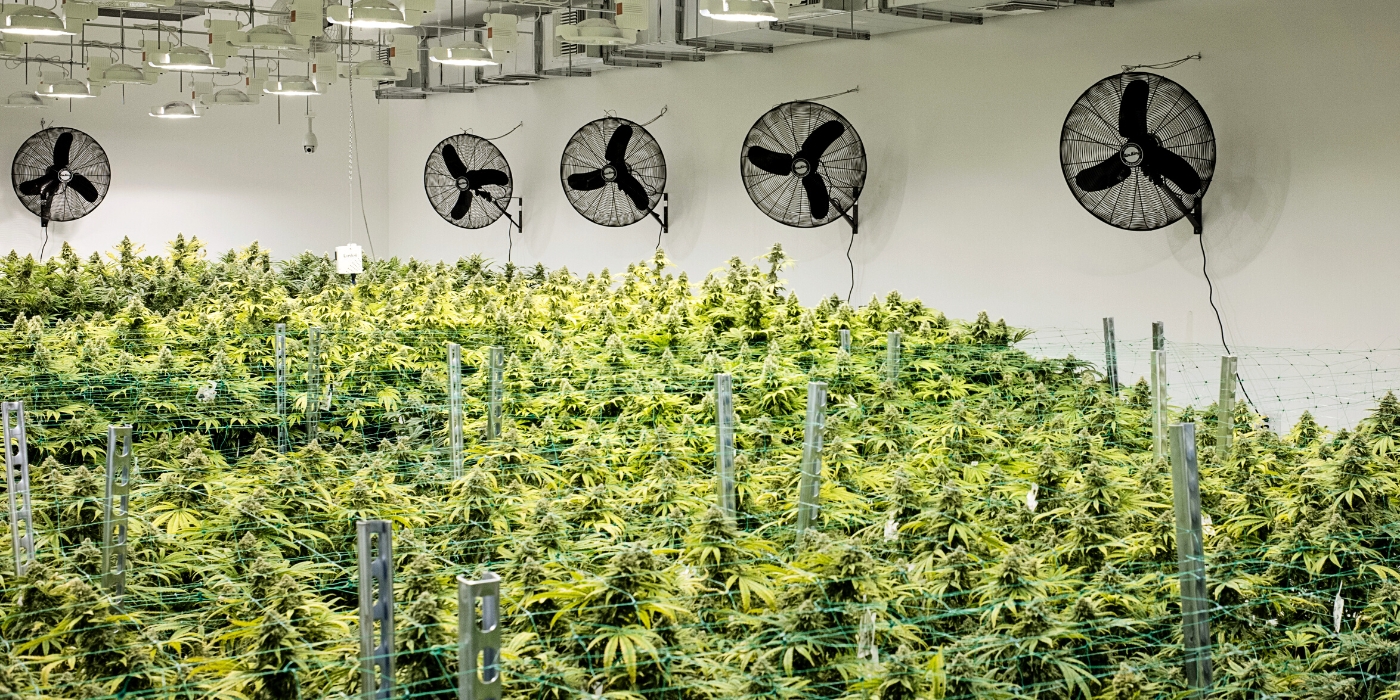
- Hemp Farming
-
by gu
It’s no surprise that environmental conditions can have a significant impact on the quality of hemp. As such, farmers have been debating the merits of indoor vs. outdoor hemp for many years. If you want to maximize profit and efficiency while achieving the best yield and potency, you must determine which growing method is suitable for you. In this article, we’ll examine the pros and cons of indoor and outdoor hemp farming so you can get the most out of your grow.
Advantages of Outdoor Hemp Farming
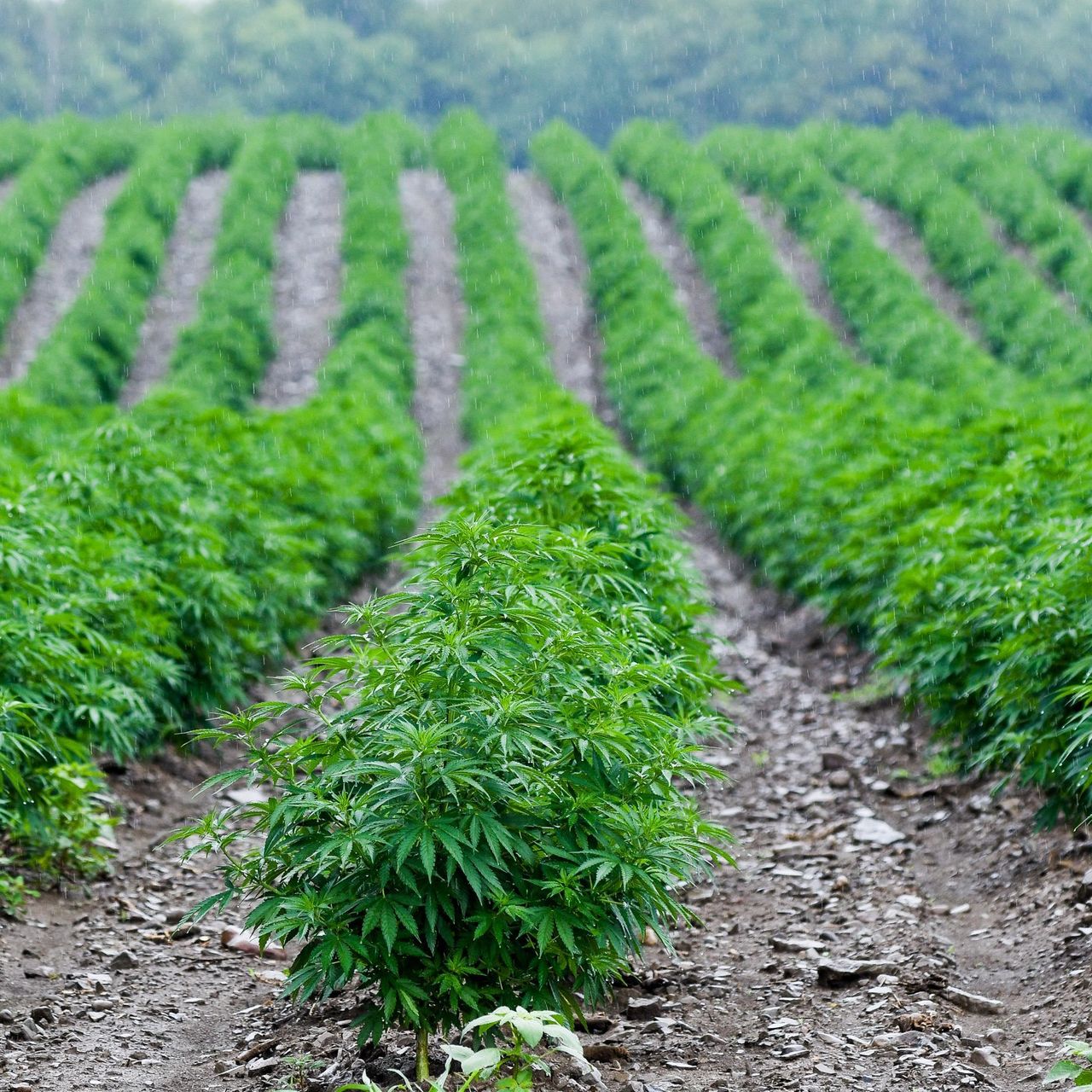
For thousands of years, hemp has been cultivated outdoors in various cultures around the world. This hardy plant has adapted to thrive in a wide range of climates, from arid mountain ranges to tropical lowlands. Still, not all environments are ideal for cultivating hemp outdoors. Let’s take a look at some of the benefits of outdoor hemp farming before exploring the drawbacks.
Higher Yield
One of the most significant benefits of outdoor farming is that it provides lots of space for hemp plants to flourish. Root zones and canopies can spread out, allowing for larger plants and more buds than in an indoor grow. More space also means more plants can be cultivated, further boosting the potential yield.
Less Expensive
Another major advantage of outdoor hemp farming is that it is less costly than operating an indoor grow. With Mother Nature at the helm, all you need to get started is some decent soil and access to clean water. Even considering the cost of equipment such as irrigation systems, tractors, and greenhouses, upfront and ongoing expenses can still be less than those of an indoor operation.
Environmentally Friendly
Outdoor farming is not only more cost-effective but also more environmentally friendly than indoor cultivation. Without the need for grow lights, air conditioners, and other equipment, hemp farms can have a minimal carbon footprint.
Farmers also have a much easier time growing organically outdoors. The larger the container, the more beneficial microbes can flourish in the soil. With increased microbial activity, organic inputs can quickly break down into food for plants. By using organic amendments, fewer synthetic chemicals make their way into our water and soil.
Drawbacks of Outdoor Hemp Farming
Contamination
One of the most important aspects of a successful harvest is producing a clean product that is safe to consume. Unfortunately, outdoor hemp plants are at a much higher risk of being exposed to pests, harmful chemicals, mold, and other contaminants than indoor crops. One day of heavy winds could spread pollutants that ruin an entire growing season.
What’s more, hemp pollen can travel great distances, seeding crops that are miles away. If you are growing smokeable hemp flower or breeding your own seeds, another farmer’s errant pollen could spoil your harvest.
Adverse Weather
Extreme weather is another threat to outdoor hemp farms. When growing outside, your plants are at risk of being damaged or destroyed by wind, rain, frost, dust storms, wildfires, and even tornados. In many parts of the United States and Canada, natural events have caused millions of dollars in agricultural losses.
Lower-quality Hemp Flower
Farmers have little control over the environment outside. This means that outdoor hemp plants often are exposed to suboptimal growing conditions. Rain, wind, and heat can also destroy or degrade the delicate trichomes on hemp buds. As a result, outdoor-grown hemp tends to be slightly lower in cannabinoids, terpenes, and other desirable compounds than indoor hemp. The flowers also may be less visually appealing, as they often are less dense and frosty.
Given the fluctuating environmental conditions, the quality of outdoor hemp is also less consistent. The flowers may be exceptionally flavorful and potent one season and lackluster the next.
Potency, flavor, and visual appeal are important selling points for most hemp-flower consumers. Having a consistently high-quality product also is crucial for hemp brokers. Therefore, outdoor-grown hemp typically sells at a lower price than indoor hemp.
Less Security
CBD- and THC-rich products are hot commodities, fetching high prices in many markets. For this reason, theft has been a threat to hemp and cannabis farmers around the nation. Unfortunately, outdoor farms are much less secure than indoor operations. A determined thief may not be deterred by cameras, fences, or even guard dogs.
Given the threats of contamination, extreme weather, and theft, it’s safe to say that outdoor hemp farming involves a higher degree of risk than indoor cultivation.
Benefits of Indoor Hemp Farming
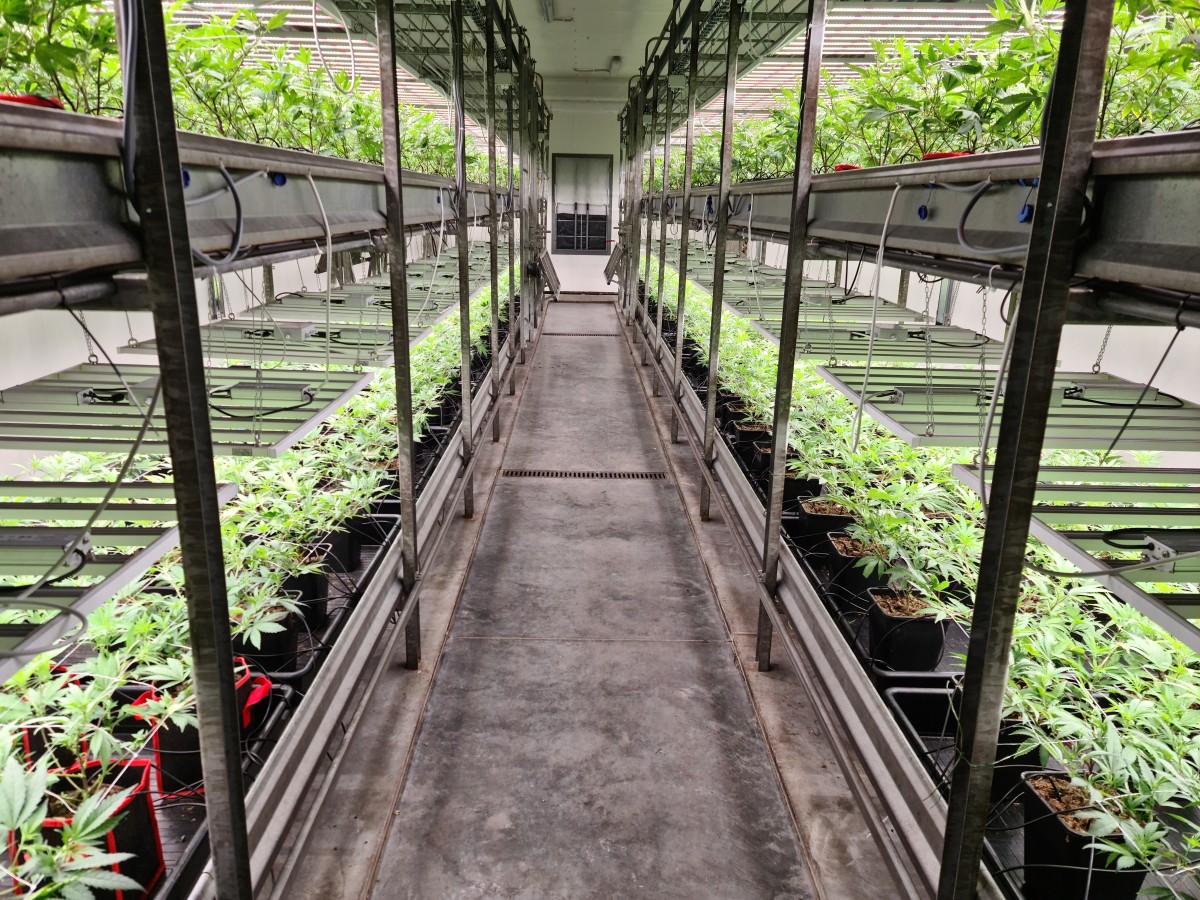
Indoor hemp farming has been prevalent for only a few decades. Yet, in that small amount of time, it has blossomed into a massive industry. Indoor cultivation has allowed growers to push the limits of hemp genetics, producing flowers that are more potent than ever before. Still, indoor farming may not be the right choice for everyone. Let’s examine the advantages of growing hemp indoors before looking at the shortcomings.
Higher Quality and Consistency
Indoor farmers have the advantage of being able to regulate nearly every aspect of the environment, including temperature, humidity, light cycle, and much more. This means it is easier for indoor growers to produce a consistently high-quality product. More environmental stability also makes it easier for farmers to set up highly efficient automated systems, giving the plants the same amount of water and nutrients each growing cycle.
By optimizing the environmental conditions, farmers can maximize cannabinoid and terpene production in hemp, leading to increased potency and flavor. High-quality hemp flowers are easier to sell and fetch a higher price from buyers.
Less Risk
Because indoor hemp farmers have more control over the environment, they don’t have to worry as much about their crops being destroyed by adverse weather, pests, or contaminants. The plants also are less obvious to prying eyes, which means theft won’t be as much of a concern.
For many farmers, all it takes is one bad season to cause a significant financial burden. Although outdoor farms tend to be less costly, an indoor grow operation may be a sounder investment for some. This is an essential factor when weighing the benefits of indoor vs. outdoor hemp farming.
More Flexibility
With greater control of the environment also comes more opportunities for farmers. Those in harsh climates have the potential to grow a wide variety of crops indoors. They also can have perpetual harvests, producing CBD hemp flower regardless of the season. And if a harvest needs to be finished earlier than expected, indoor growers can simply change the light cycle to force the plants into flowering. This increased flexibility is an important consideration when comparing indoor vs. outdoor hemp farming.
Drawbacks of Indoor Hemp Farming
More Expensive
Indoor grow rooms require a considerable upfront investment, and ongoing costs tend to be higher than with an outdoor grow. Specialized equipment, such as lights, fans, air filters, dehumidifiers, and air conditioners, must be purchased and maintained, which can add up quickly. In most cases, buying or leasing a warehouse is also more expensive than a plot of farmland.
Indoor farmers must pay steep electricity bills to power their grow lights. And, unless they collect rainwater, they’ll also have to pay more for water. What’s more, indoor plants need more fertilizer than those grown in the ground. Given all these factors, it’s easy to understand why it costs a lot more to produce a pound of indoor hemp flower than a pound of outdoor hemp.
Smaller Yield
Indoor hemp grows tend to be much smaller in scale than outdoor farms. This means the plants won’t have as much room to branch out and produce bud sites. Outdoor hemp plants also tend to grow thicker, more robust stalks due to all the environmental stressors they face. As a result, they usually form much larger colas than indoor plants. While indoor growers have the advantage of perpetual harvests, producing a large yield outdoors is much easier and affordable.
Harder to Grow Organically
Because most indoor grow rooms have limited space, the plants are usually cultivated in smaller containers. This makes it much harder for microbes to populate the soil. Without the assistance of beneficial bacteria, fungi, and other microorganisms, hemp plants can’t absorb as many nutrients. They also are more susceptible to pests, diseases, fluctuations in pH, and other stressors.
Growing in small pots means farmers will have to fertilize their plants frequently. It is a very labor-intensive task to top-dress a large number of plants with organic fertilizers. For this reason, many indoor growers opt for bottled synthetic nutrients instead of dry organic amendments.
Indoor vs. Outdoor Hemp Farming: Which Is Best?
For farmers in temperate climates with moderate humidity levels, growing outdoors may be the more profitable and efficient choice; however, those in harsh environments with short growing seasons should consider growing hemp indoors. Ultimately it comes down to what you can afford, how much labor you’re willing to do, and how optimal your environment is. Fortunately, there is a diverse assortment of hemp strains bred to thrive in various climates.
Do you prefer outdoor or indoor hemp farming? Please share your thoughts in the comment section below. While you’re here, shop our selection of premium femininized hemp seeds.
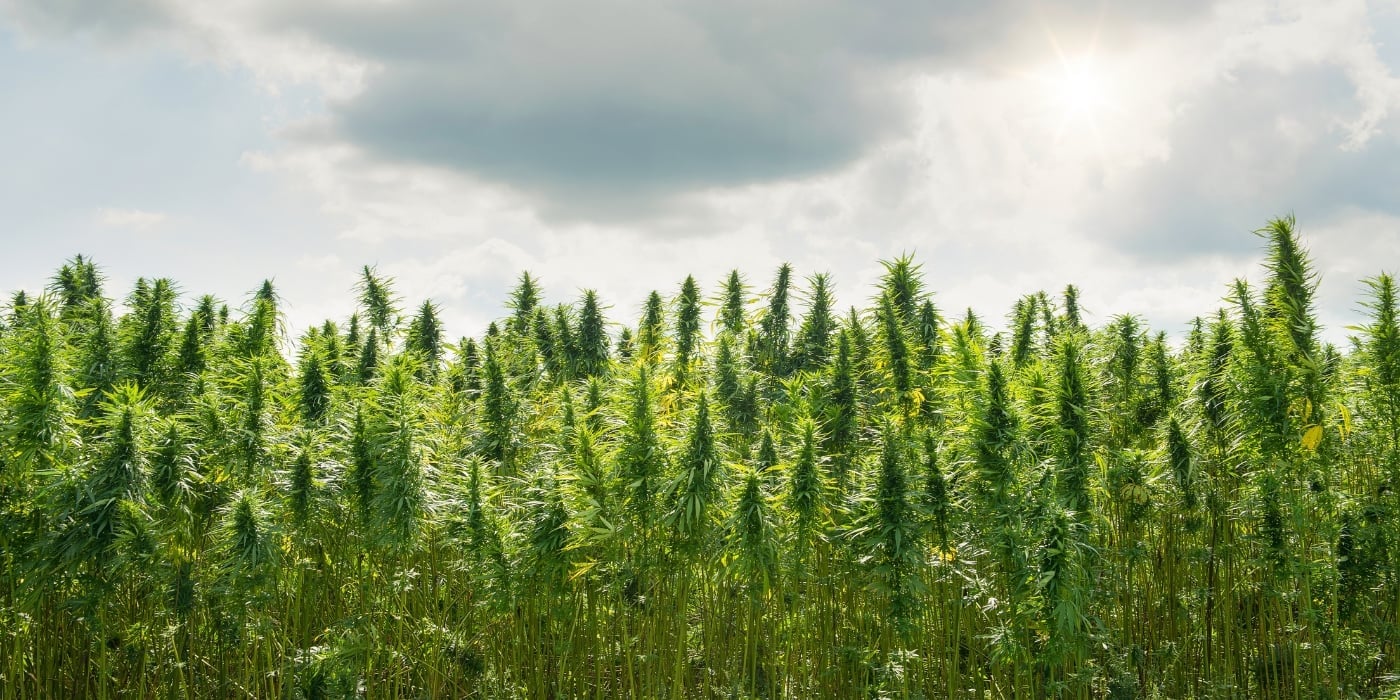
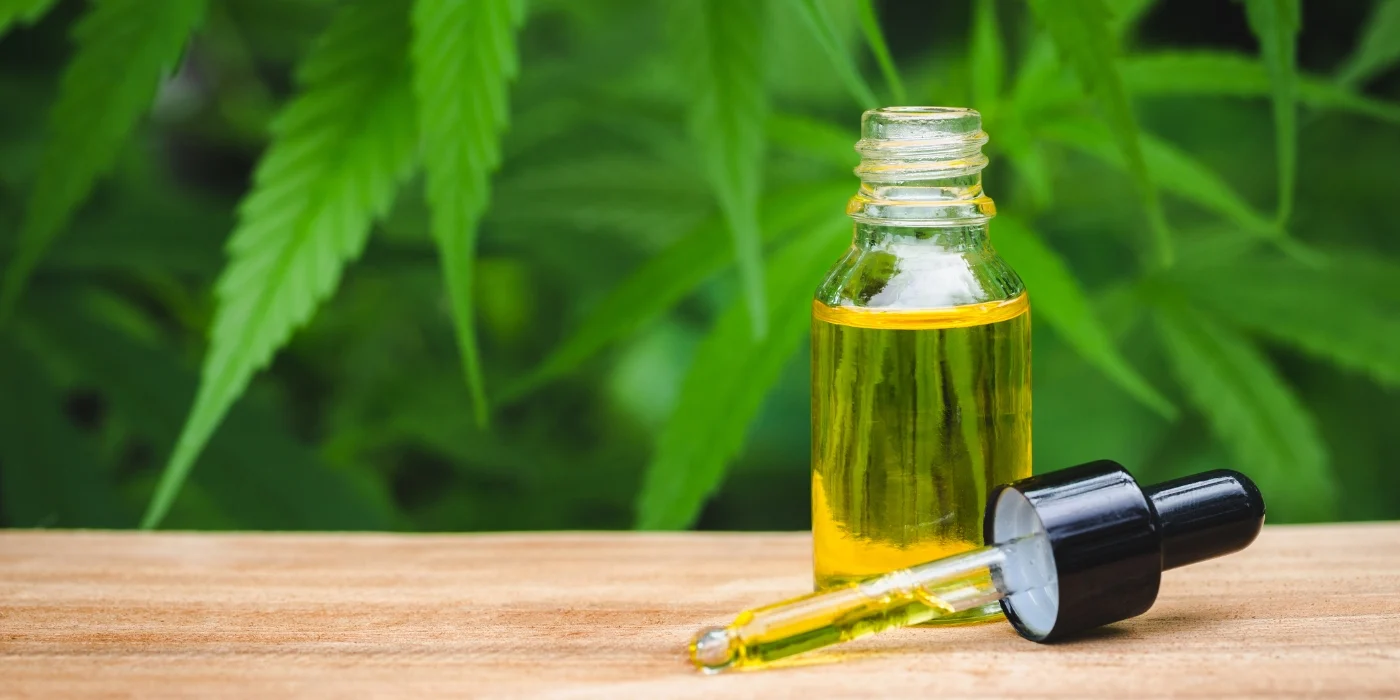


Tom D Stevens
April 8, 2023 at 5:51 pmI’m in #6 area for growing near Long Island Sound in the middle of CT. How long does hemp take to mature? With feminized seedlings, what do I look for to see when to harvest? hopefully it is before 1st frost by Oct 15th. That’s when the tre leaves start to turn in our area. My funds are limited, so seedlings must be shipped soon if I am to harvest 4200 plants this season. I will let you know when I can pay for those plants. Just let me know how much plus shipping to Killingworth, CT.